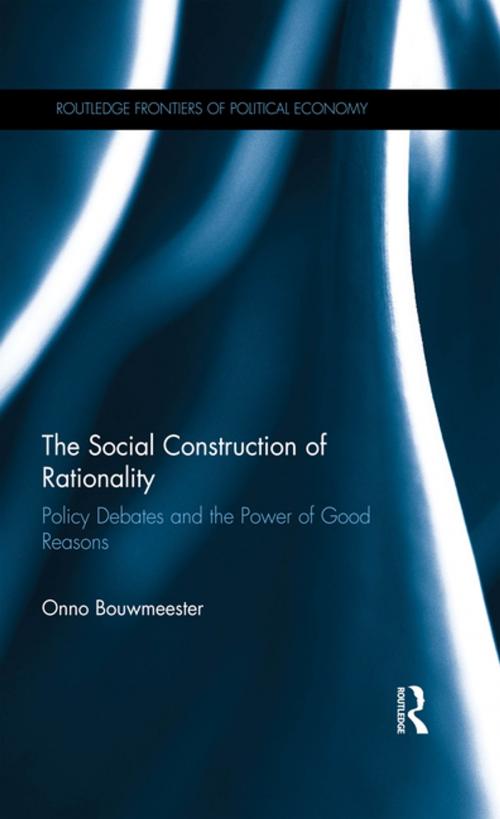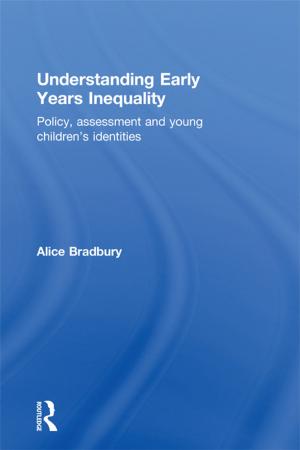The Social Construction of Rationality
Policy Debates and the Power of Good Reasons
Business & Finance, Economics, Theory of Economics| Author: | Onno Bouwmeester | ISBN: | 9781317530756 |
| Publisher: | Taylor and Francis | Publication: | March 16, 2017 |
| Imprint: | Routledge | Language: | English |
| Author: | Onno Bouwmeester |
| ISBN: | 9781317530756 |
| Publisher: | Taylor and Francis |
| Publication: | March 16, 2017 |
| Imprint: | Routledge |
| Language: | English |
There are many different forms of rationality. In current economic discourse the main focus is on instrumental rationality and optimizing, while organization scholars, behavioural economists and policy scientists focus more on bounded rationality and satisficing. The interplay with value rationality or expressive rationality is mainly discussed in philosophy and sociology, but never in an empirical way. This book shows that not one, but three different forms of rationality (subjective, social and instrumental) determine the final outcomes of strategic decisions executed by major organizations.
Based on an argumentation analysis of six high-profile public debates, this book adds nuance to the concept of bounded rationality. The chapters show how it is socially constructed, and thus dependent on shared beliefs or knowledge, institutional context and personal interests. Three double case studies investigating the three rationalities illustrate how decision makers and stakeholders discuss the appropriateness of these rationalities for making decisions in different practice contexts. The first touches more on personal concerns, like wearing a niqab or looking at obscene art exposed in a public environment; the second investigates debates on improving the rights and position of specific minorities; and the third is based on the agreement on instrumental reasons for two kinds of investments, but the cost arguments are regarded less relevant when social norms or personal interests are violated.
The Social Construction of Rationality is for those who study political economy, economic psychology and public policy, as well as economic theory and philosophy.
There are many different forms of rationality. In current economic discourse the main focus is on instrumental rationality and optimizing, while organization scholars, behavioural economists and policy scientists focus more on bounded rationality and satisficing. The interplay with value rationality or expressive rationality is mainly discussed in philosophy and sociology, but never in an empirical way. This book shows that not one, but three different forms of rationality (subjective, social and instrumental) determine the final outcomes of strategic decisions executed by major organizations.
Based on an argumentation analysis of six high-profile public debates, this book adds nuance to the concept of bounded rationality. The chapters show how it is socially constructed, and thus dependent on shared beliefs or knowledge, institutional context and personal interests. Three double case studies investigating the three rationalities illustrate how decision makers and stakeholders discuss the appropriateness of these rationalities for making decisions in different practice contexts. The first touches more on personal concerns, like wearing a niqab or looking at obscene art exposed in a public environment; the second investigates debates on improving the rights and position of specific minorities; and the third is based on the agreement on instrumental reasons for two kinds of investments, but the cost arguments are regarded less relevant when social norms or personal interests are violated.
The Social Construction of Rationality is for those who study political economy, economic psychology and public policy, as well as economic theory and philosophy.















